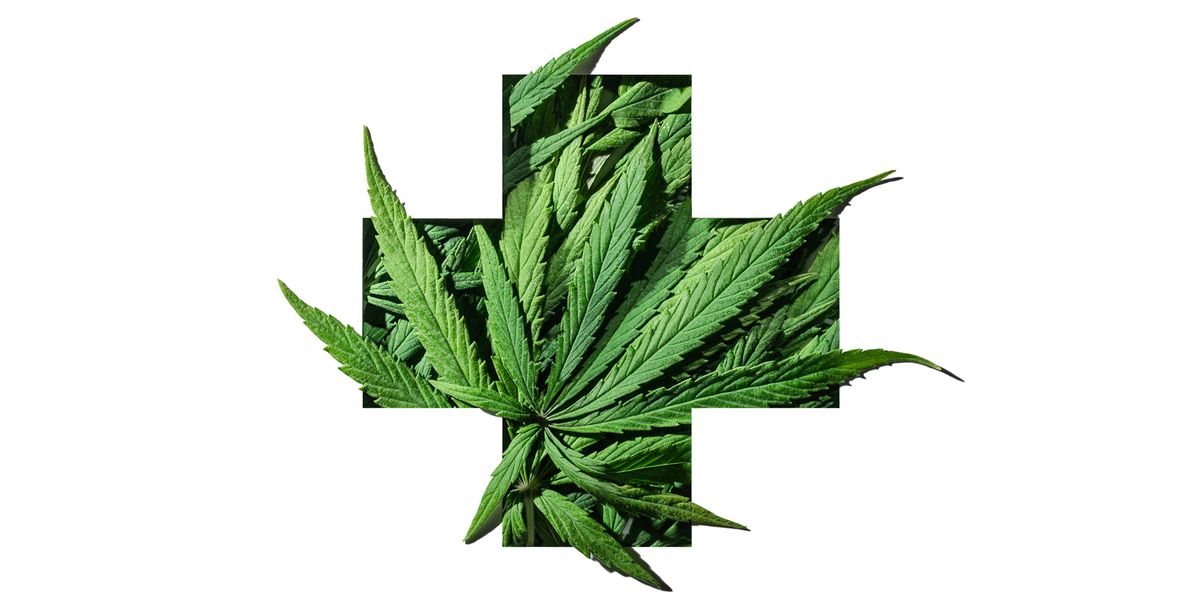Shedding Light on What Medical Cannabis Can Cure: a Thorough Evaluation of Its Restorative Properties
In recent years, there has actually been an expanding interest in the therapeutic possibility of medical cannabis. While unscientific proof is plentiful, a complete assessment of the clinical information concerning the performance of medical cannabis in treating these conditions is warranted.
Chronic Pain Monitoring
Chronic pain monitoring remains an important facet of healthcare, demanding a comprehensive approach for effective therapy. In the last few years, clinical marijuana has actually emerged as a potential restorative choice for individuals experiencing chronic pain conditions. The endocannabinoid system, which plays an essential role hurting modulation, has actually been targeted by cannabis-based therapies to reduce signs and symptoms and improve high quality of life for clients.

Additionally, clinical cannabis offers an appealing option for patients that experience intolerable adverse effects from conventional pain medicines. Its capacity to deal with pain with a different mechanism makes it a beneficial addition to the arsenal of therapies available for persistent pain administration.
Epilepsy Treatment Prospective
Clinical cannabis has shown appealing possibility in the treatment of epilepsy, supplying a novel restorative approach for handling seizures in people. Epilepsy is a neurological condition defined by recurring seizures, affecting individuals of all ages. Conventional treatments for epilepsy consist of antiepileptic drugs, but these medications might not work for all clients and can have substantial adverse effects.
Research study on the usage of clinical cannabis for epilepsy has exposed motivating outcomes. Cannabidiol (CBD), a non-psychoactive substance located in marijuana, has been particularly highlighted for its anticonvulsant homes. Studies have revealed that CBD can reduce the regularity and seriousness of seizures in individuals with treatment-resistant kinds of epilepsy, such as Dravet disorder and Lennox-Gastaut disorder.
Furthermore, the FDA has authorized a CBD-based medicine, Epidiolex, for the treatment of seizures related to these severe forms of epilepsy. This milestone underscores the growing acknowledgment of clinical marijuana as a beneficial healing alternative for managing epilepsy and provides wish for patients that have not responded well to conventional treatments.
Nausea Or Vomiting Relief Perks
The reduction of queasiness with using cannabis has been progressively acknowledged for its restorative benefits in numerous medical problems. Queasiness and throwing up prevail signs and symptoms experienced by people undertaking chemotherapy, those with food poisonings, and individuals with persistent discomfort problems. Medical marijuana, with its energetic compounds such as THC and CBD, has actually revealed pledge in offering alleviation from nausea or vomiting.

Moreover, medical marijuana provides a natural option for individuals that do not respond well to traditional anti-nausea medications or that experience serious negative effects from these medicines. Clients going through chemotherapy, specifically, have reported significant renovations in their lifestyle when utilizing marijuana to handle nausea or vomiting. As research study in this location continues to expand, medical marijuana is progressively being thought about as an important alternative for nausea relief in different clinical settings.
Anxiousness Reduction Impacts
Studies have demonstrated the possibility of cannabis in reducing anxiousness signs and symptoms with its communication with the endocannabinoid system. The endocannabinoid system plays an essential duty in regulating emotions, consisting of anxiousness, by preserving homeostasis in the body. Cannabinoids in marijuana, such as THC and CBD, communicate with the endocannabinoid receptors in the mind, especially the CB1 and CB2 receptors, to regulate anxiety-related reactions.

Individuals with problems like generalised anxiety condition (GAD), social anxiousness problem, and trauma (PTSD) may take advantage of the anxiolytic properties of cannabis (Medical Cannabis Clinic). Additional study is needed to determine optimum does, shipment methods, and long-lasting impacts on anxiety management.
Potential for Inflammation Control
With its known anti-inflammatory buildings, marijuana has actually shown guarantee in possibly regulating inflammation within the body. Inflammation is the body's natural reaction to injury or infection, however when it comes to be persistent, it can add to various illness such as joint inflammation, inflammatory bowel illness, and also cardiovascular disease. Study recommends that the cannabinoids found in cannabis, such as THC and CBD, can aid regulate the immune feedback and minimize inflammation.
Studies have actually shown that marijuana can connect with the endocannabinoid system, which plays an essential duty in controling inflammation. By targeting the cannabinoid receptors, marijuana compounds can regulate the immune reaction, leading to a weblink decline in inflammation degrees. This makes marijuana a possible candidate for managing inflammatory problems where standard treatments have actually failed.
Additionally, cannabis-derived items like CBD oil have breast clinic obtained popularity for their anti-inflammatory properties, with lots of individuals utilizing them as an all-natural treatment for problems related to swelling. While more research study is required to fully comprehend the systems behind marijuana's anti-inflammatory effects, present searchings for reveal appealing results for the potential usage of clinical marijuana in regulating inflammation.
Final Thought
In conclusion, medical marijuana has shown encouraging restorative residential properties in handling chronic pain, dealing with epilepsy, soothing queasiness, decreasing anxiousness, and controlling swelling. Its prospective benefits in various medical problems highlight the significance of additional research study and expedition into its medical use. The proof suggests that medical marijuana can be a valuable choice treatment alternative for people looking for remedy for a series of conditions and signs and symptoms.
In current years, clinical cannabis has actually arised as a possible therapeutic option for people experiencing from persistent discomfort problems.Medical cannabis has actually shown encouraging potential in the therapy of epilepsy, offering an unique healing technique for handling seizures in patients. As study in this location continues to grow, medical marijuana is increasingly being considered as a beneficial choice for nausea relief in he said numerous medical settings.
In verdict, clinical marijuana has shown appealing restorative buildings in handling chronic pain, treating epilepsy, alleviating nausea or vomiting, decreasing anxiousness, and controlling swelling. The evidence suggests that medical marijuana could be a beneficial alternative therapy option for patients looking for alleviation from an array of problems and signs.